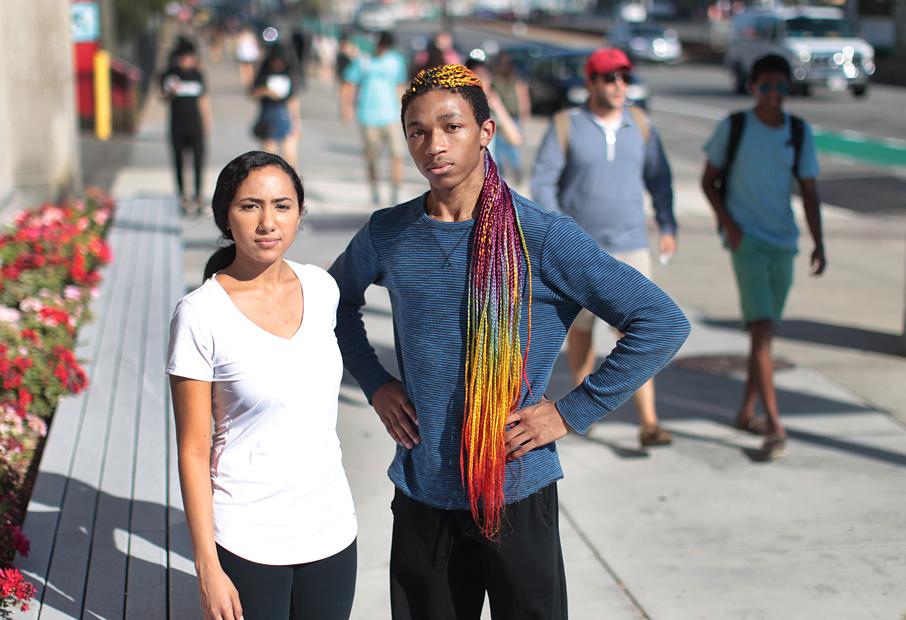A group of Boston University students is finding common ground on a little-discussed issue: how hard it is to be poor at an expensive private college.
The students have launched a social-media movement, #PoorAtAPrivateUniversity, to provide a forum for a growing number of BU students to open up about what they say are opaque financial aid packages, confusing policies, and the daily challenge of fitting in among affluent peers.
The group, which on Facebook has about 100 members so far, is not complaining about the high cost of BU ($65,000 a year, including room and board) but instead about the often perplexing, seemingly illogical system of financial aid awards on which they rely.
The movement has caught the attention of BU administrators, who have agreed to meet with the students and hear their concerns.
“I just wanted to draw attention to all these attitudes, these experiences that get swept under the rug because there is so much shame and embarrassment attached to them,’’ Devon Stokes, the sophomore who started the movement, said in an interview on campus Friday. “I just want people to acknowledge that there is a difference in experience based on how much wealth you have.’’
Stokes and other students said that when they first arrived at BU, they tried to fit in — going to restaurants they couldn’t afford, buying nicer clothes. This group has helped them feel at ease with others who think like they do, who try to stretch every dollar because they have to.
One common problem students cite is that a change in a family’s financial situation — a job change, a divorce, a move — can trigger a change in their financial aid and require them to pay more.
This summer, Stokes found out that because of a change in his mother’s income he would have to pay an extra $6,000 this year, money they didn’t have. Working with the financial aid office, he said, they were able to come up with about half that amount in a $500 scholarship and some additional loans, but he will have to come up with the rest.
Stokes, who is from Orlando, is supported by his mother, a single parent who he said lives off disability pay that puts her below the federal poverty line.
It’s not just these students who have noticed that the financial aid system, determined both by colleges as well as federal regulations about how much aid (and what types) students qualify for, can be confusing and misleading.
One big problem, said financial aid expert Mark Kantrowitz, is that some schools blur the distinction between grants, which don’t have to be repaid, and loans, which do. Some schools also “front load,’’ he said, awarding students more money the first year to entice them to attend.
“Part of [the colleges’] goal is to show you or to demonstrate that you can afford the college even when you can’t,’’ said Kantrowitz, publisher and vice president of strategy at cappex.com, a website that helps students find scholarships.
On the #PoorAtAPrivateUniversity Facebook page, students vent about their situations and offer suggestions. They also write about where they’ve found student discounts or free food.
Stokes hopes the movement will prompt BU to make changes to help students better understand their financial aid packages. He also wants to make them feel comfortable talking about it.
“After the hashtag I felt a lot freer, that I could get some of my thoughts out,’’ said his classmate Pamela Munoz, a junior from the Bronx who is now helping him lead the movement.
Munez’s father is also a single parent and earns a meager living as a taxi driver in New York City. She said she has a scholarship from BU, some work-study hours, a Pell grant from the federal government, and about $10,000 every year in loans, but there is always a gap. She pays about $1,000 out of pocket every semester.
She notices how her life is different from many of her classmates. Munoz said she dropped a French class because the book cost $170. Instead of taking an unpaid summer internship, as many of her classmates do, she worked in the office of her high school in the Bronx.
“I feel already disadvantaged; it’s a huge stress not only on me but it’s a stress on my dad,’’ she said.
Julie Wickstrom, BU’s director of financial assistance, plans to meet with the two students next week. In a statement to the Globe, Wickstrom said she was concerned when she learned about the group — first reported in the BU Tab and the Daily Free Press — and wants to do a better job helping students navigate the financial aid process.
Kailynn Palaima, a sophomore from Marlborough, transferred from BU to Bridgewater State University because she could no longer afford BU after her mother got divorced.
Palaima said the financial aid office told her they could not adjust her aid until the divorce was final, but in the meantime she cannot pay. BU does not discuss the financial circumstances of individual students.
“I don’t need a free ride — that’s not what I was asking for. I just needed help in this moment,’’ she said.
Laura Krantz can be reached at laura.krantz@globe.com. Follow her on Twitter @laurakrantz.




